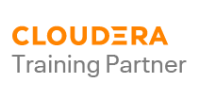Additional information
| Prerequisites | This course is appropriate for developers and administrators who intend to use HBase. Prior experience with databases and data modeling is helpful, but not required. Knowledge of Java is assumed. Prior knowledge of Hadoop is not required, but Cloudera Developer Training for Spark and Hadoop provides an excellent foundation for this course. |
|---|---|
| Difficulty level | |
| Duration | 3 days |
| Certificate | The participants will obtain certificates signed by Cloudera (course completion). Upon completion of the course, attendees are encouraged to continue their study and register for the CDP Data Developer exam https://www.cloudera.com/about/training/certification/cdp-datadev-exam-cdp-3001.html Certification is a great differentiator. It helps establish you as a leader in the field, providing employers and customers with tangible evidence of your skills and expertise. |
| Trainer | Certified Cloudera Instructor |
Other training Cloudera | Cloudera Data Developer
Data Analytics and Databases
Cloudera Administrator | Cloudera
-

ADMIN-230 Administrating Cloudera Data Platform training Cloudera
-

ADMIN-236 Managing Apache Ozone training Cloudera
-

ADMIN-332 Building Secure Cloudera Clusters training Cloudera
-

ADMIN-335 Running Cloudera Private Cloud training Cloudera
-

ADMIN-336 Running Cloudera Public Cloud training Cloudera
-

Administrator Training: CDP Private Cloud Base training Cloudera
-

DGOV-221 Controlling with Cloudera Data Governance training Cloudera
Data Platform | Microsoft
-
recommended training

DP-900T00 Microsoft Azure Data Fundamentals training Microsoft
-

DP-070T00 Migrate Open Source Data Workloads to Azure training Microsoft
-

DP-080T00 Querying Data with Microsoft Transact-SQL training Microsoft
-

DP-090T00 Implemeting a Machine Learning Solution with Microsoft Azure Databricks training Microsoft
-

DP-100T01 Designing and Implementing a Data Science Solution on Azure training Microsoft
-

DP-203T00 Data Engineering on Microsoft Azure training Microsoft
-

DP-300T00 Administering Microsoft Azure SQL Solutions training Microsoft
-

DP-420T00 Designing and Implementing Cloud-Native Applications Using Microsoft Azure Cosmos DB training Microsoft
TRAINING PRICE FROM 2200 EUR
In order to propose a date for this training, please contact the Sales Department
Upcoming Cloudera training
-
2026-02-24 Kraków / Virtual Classroom
Cloudera Training for Apache Kafka
hybrid training: HYBRID -
2026-03-24 Warszawa / Virtual Classroom
Cloudera Training for Apache Kafka
hybrid training: HYBRID -
2026-05-19 Kraków / Virtual Classroom
Cloudera Training for Apache Kafka
hybrid training: HYBRID -
2026-05-26 Warszawa / Virtual Classroom
Cloudera Training for Apache Kafka
hybrid training: HYBRID -
2026-06-23 Kraków / Virtual Classroom
Cloudera Training for Apache Kafka
hybrid training: HYBRID -
2026-06-30 Warszawa / Virtual Classroom
Cloudera Training for Apache Kafka
hybrid training: HYBRID


